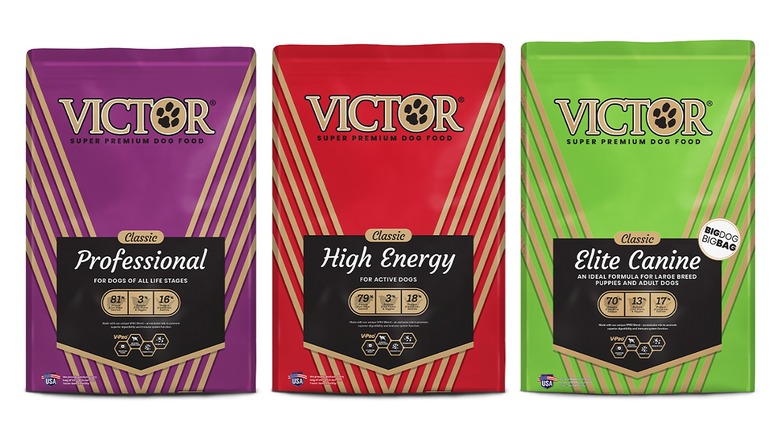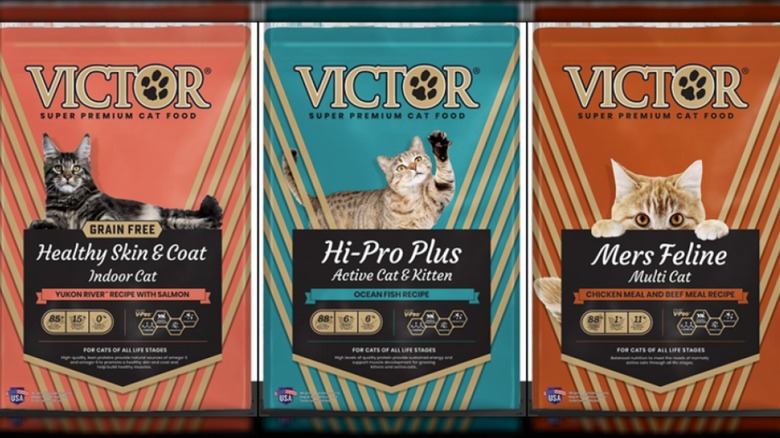Pet Food Recalled After 7 Cases Of Salmonella Reported In Humans
Luckily for pet lovers, many illnesses aren't transferable between humans and animals. Feline immunodeficiency virus is a cat thing alone. Dogs can get the flu, but it's caused by a different influenza strain from the one that makes people sick. Alas, the same isn't true of foodborne illnesses, and parasitic microbes can pass from perfectly healthy pets to susceptible humans. When you hear "salmonella," you might think of foods like raw oysters or hollandaise sauce. But, in this most recent case, pet food is the guilty carrier.
Seven patients have become ill with Salmonella Kiambu infections after being exposed to a specific lot of contaminated Victor brand Hi-Pro Plus dry dog food. One of the patients has been hospitalized, and these reported cases may not reflect the actual number of people who have become ill as a result of exposure. The cases are spread across seven states. So far, they're predominantly infants, six of whom are only 1 year of age or younger.
On November 9 the manufacturer Mid America Pet Food issued an official voluntary recall on the Victor brand and all other brands of pet food in its repertoire. The recall affects all dog and cat food with "best by" dates before 10/31/2024. It includes the 5-, 15-, 16-, 30-, 40-, and 50-pound bags of Victor Super Premium Dog Foods, Wayne Feeds Dog Food, Eagle Mountain Pet food, and Member's Mark. A comprehensive list of affected product lot numbers is available via the CDC website.
A highly specific case of pet-to-human transfer
The young age of the patients might shed some light on how this transfer of salmonella from animals to humans was possible in the first place. Affected parties may have become ill after touching the contaminated pet food, the pet's food bowl, or the feces or saliva of dogs who had eaten the food. According to the FDA, humans are more likely to be affected by this secondhand Salmonella outbreak if they haven't washed their hands after being exposed. It seems plausible that a crawling infant accessed the pet food on a kitchen floor, or a child came into contact with an infected animal's saliva. Salmonella largely doesn't affect pets, though there is a greater chance of harm in very young animals or those with health problems.
Mid America Pet Food is based in Mount Pleasant, Texas, but distributes products all across the country. Per the FDA, all retailers must pull the products from store shelves immediately. Federal public health officials have instructed buyers to sanitize all surfaces (including pet food bowls) that would have touched the food and to throw any remaining food away "in a sealed trash bag and place it in a sealed trash can so that wildlife cannot get to it," per the CDC.
News like this may be unsettling for parents of young children, especially considering that the recent mass baby formula shortage was ignited by another foodborne pathogen. Investigations are active to uncover the cause of the pet food outbreak.

